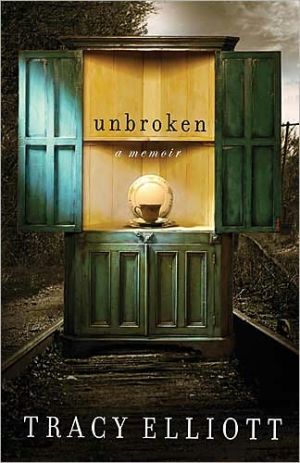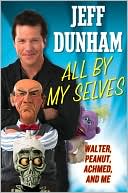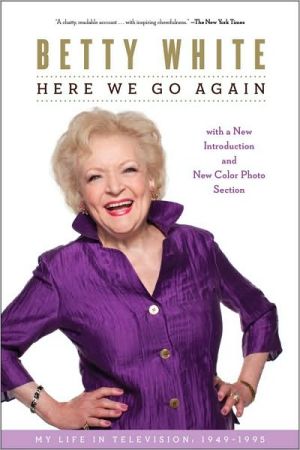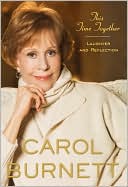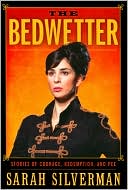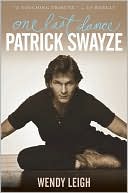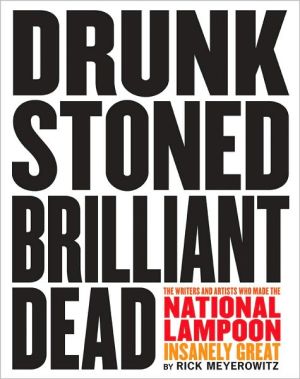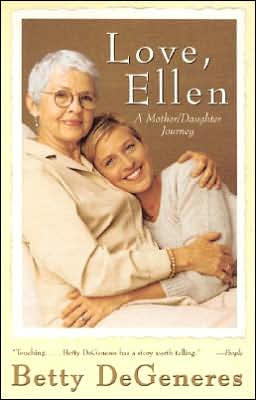Unbroken: A Memoir
All the furniture in the house got wrecked except this one old wooden china cabinet in my grandmother’s kitchen, which somehow remained standing despite all odds. One night, in the midst of a prayer, I glanced over at it and thought, If this cabinet could talk... What madness it had seen.The Lord spoke to me then. “You’re both here, and you both survived, and just like this cabinet, you remain unbroken.”\ Tracy Elliott led a rough life. This honest memoir takes you into the heart of the...
Search in google:
One thing, a cupboard, was the only thing in Tracy Elliott's life that didn't get shattered. As a stripper, Elliot lived hard and suffered the consequences. In Unbroken, she tells the deeply impacting story of how her life was put back together by the power and redemption of God. Publishers Weekly Elliott is, undoubtedly, a survivor. Orphaned by age six and sent to live with a grandmother who was still keeping a nest full of grown, unemployed alcoholic sons, Elliott endured virtually every abuse imaginable. Unsurprisingly, her days as a cheerleader and beauty pageant contestant gave way to a whirlwind of alcohol, drugs and demeaning behavior until the day she met her husband Now a mother, successful businesswoman and winner of the Mrs. Texas pageant, she wants to offer a message of hope and ardent religious faith. The understandably tattered strands of memory, emotion and chronology make for an uneven tapestry at times. Though fairly raw, she's taken care to keep her story from becoming R-rated and to keep the small Southern towns of her youth anonymous. In the brief month she spent at rehab, Elliot, like many recovering addicts, found a way that works for her and is eager to share her newfound faith in God with others. Her dedication to proselytizing is matched only by her staunch belief in tithing, two traditions that may not appeal to all readers. (Apr. 10)Copyright 2007 Reed Business Information
unbroken\ \ By Tracy Elliott Jenna Glatzer \ Thomas Nelson\ Copyright © 2007 Tracy Elliott and Jenna Glatzer\ All right reserved.\ ISBN: 978-0-7852-2167-8 \ \ \ Chapter One\ For years, I thought my mother had died in bed next to me. It was storming that night, and our rickety old house was leaking and creaking, and she was dying. I knew it. I knew it ever since her boyfriend and I took her to the doctor, and he told her that if she didn't quit drinking, she would die. \ "Do you understand?" he asked her.\ "I understand."\ When we got back to the car, her boyfriend asked where she wanted to go.\ "To the liquor store."\ I screamed at her then in my mind, a mix of fury and tears. Didn't you hear? He said you would die! He just said ...\ Thunder shook the house, and I was alone with her now, six years old and scared. My uncle stopped by earlier that day, and when he saw my mom, he went to get my grandmother. He knew, too.\ I know all kids think their moms are the most beautiful women in the world, but my mom was stunning-the kind of woman who made people stop in the streets and stare. Petite, so well put together all the time, with her purse over her arm and her magnetic smile. I always hoped I would look just like her when I grew up.\ But Mom didn't look like Mom anymore. She was yellow. Jaundice is what they call it-one of the symptoms of cirrhosis of the liver. But I just knew that the more I saw her skin and eyes turn yellow, the more I was losing her,and the devil was winning. She was tired all the time and throwing up blood clots the size of hand towels. I'd try to help her to the bathroom, but she didn't always make it in time. Sometimes she didn't make it out of the bed. She'd try to clean the blood off her face and the blankets, and I'd make an effort to help.\ It's funny the little details you remember about things that turn your life upside-down, even when the big details are too hard to think about. For me, it's the Dennis the Menace coloring book. I wanted to comfort her, so I brought her my coloring book and turned it to a page where Dennis's mom is wearing a flowered housecoat and fixing him breakfast. Pink was my mom's favorite color, so that's the crayon I gave her, but she couldn't stay in the lines.\ That drove me crazy. The whole page was a scribbled mess, no matter how I tried to help her. So I yelled at her to stay in the lines. This strange rage built up inside, and I was trying to be angry about her coloring even though I was really angry about her dying.\ "Tracy, Momma's too weak to color," she said.\ My drunk uncle drove my grandmother over, and I remember Mom and I going back to her house that night. Grandma had two beds: one twin and one queen-size, and I crawled in the big bed with my mom and kissed her goodnight. The next memory I had was waking up the next morning and sensing that I was late for school.\ I heard these voices coming from another room-my relatives from far away. Why were they all there? Something was wrong. I walked out into the living room, and everyone was just staring at me. I went straight over to my grandma, who grasped my hands.\ "I have something to tell you," she said. "Your mom died last night."\ I ran into the bathroom and closed the door. My brother Dave, who's six years older than I am, hid in the bedroom. My brother Bobby, who's ten years older than I am, just left the house. That about summed up the way we would live for the next several years.\ Bobby's the one who told me that I was remembering wrong. I thought it was all one night-the storm, the coloring book, then my aunts' voices in the living room. But it wasn't.\ "She lived for two weeks after that," he said. "We took her to the hospital that night."\ I liked my version better. The real one, which came back to me in a torrent as he spoke, was uglier. We did take her to the hospital that night, and that's where she would stay. It was a little hospital in a little bitty southern town. I never wanted to visit, but they made me. There were tubes up her nose, all kinds of machines, her hair was a wreck, and her stomach was swelled out like she was eight months pregnant.\ One day she opened her eyes, and I asked, "Are you having another baby?" I didn't know why that made her cry so much.\ The nurses later told me that they could hear her crying down the hall after I left, calling out that she was sorry about the bad choices she made. But it was too late. Bobby was sixteen at the time, and he was the one who saw her final breath. For two weeks, he didn't leave that hospital because he never wanted her to be alone. He had to take the wedding ring off her finger before they brought her to the morgue.\ Country people really make the most of their mourning. They can have a funeral that lasts for a week. I didn't want any part of it, but there I was in my nicest dress in the front row, on display for everyone to hug and pat on the head.\ "That bloated woman in the coffin isn't my mom," I wanted to tell them. "My mom is the woman who used to tell me to grab the shampoo so we could wash our hair out in the rain. She's the one who took us to pecan orchards and didn't even mind when I decided to lie on the pecan sacks and get a tan while she and my brothers did all the work. When she made my sandwiches, I didn't want to eat the crust, but she told me the crust would make me pretty, so I ate it!" We had happy times. Things could have been different.\ But instead, there she was, and now she would live at the funeral home with my dad the way she wanted to. That's what I told my school friends because that's what I thought: My parents would always be together in the funeral home now.\ My dad had died of a massive heart attack when he was thirty-eight and I was two. He just went to get the newspaper, then walked back into the room and fell down. I was playing on the floor, and he just collapsed right next to me. I remember thinking he was just asleep, but my mom was hysterical, and Bobby ran next door to get the neighbor, who was a doctor. On his way out, he didn't have time to bother with the latch on the screen door, so he completely broke the door down getting out. I think they were able to revive my dad for a minute, but he died on the way to the hospital.\ I'm not supposed to remember him, but I do. I remember his face, his charm. I remember he wasn't very nice to my mom, and I remember how much she loved him anyway.\ Just recently, I took all our old reel-to-reel family movies and had them converted to DVD. I hadn't seen many of them before, and many of them were taken before I was born. The funny thing is the progression. I could barely remember a time when my mom wasn't frazzled and drinking all the time, so it was an eye-opener for me.\ In the earlier scenes, it's like you're looking at the Cleaver family. They're all clean cut, wearing nice clothes. My dad has the hair and facial features of a young Elvis, and my mother's hair is always done. You can see how in love they were and how cute they could be with each other. By the time I was born, they looked totally different. Not put together at all. And in those last few years, my dad ended up looking like the older Elvis-heavy and bloated and used up.\ What happened to these people? It's like the Cleavers accidentally got on a Rolling Stones tour bus and never got off. The American Dream expiring and curdling like bad milk right before my eyes.\ There's no sound in any of the movies, but you can still tell when they're drunk. There's one that just makes my heart crack because it feels like a window into my mother's mind. My uncle, who had just come home from Vietnam, was standing in his uniform in front of the camera, drunk as can be. My mom is sewing and yelling at him. My dad is drunk, too, and she looks at him out of the corner of her eye in such a sad way, like she's thinking, "Great, I have to put up with this now." A minute after they shut off the camera, you know the two men were headed to a bar to meet women. That's what my family tells me about my dad, surrounded by words like, "Not to hurt your feelings about your dad, Tracy, but ..."\ I never saw him beat her, but I hear that he did. My brothers saw more of it than I did. It's one of those things that was better not to know.\ My dad didn't have much family to speak of. His mom had died when he was two, and he'd lived with his grandmother, who was a little kooky. I hear that she loved him, but I don't think he ever had anyone who spoke positive things into his life. No one was telling him, "You're meant for better things than this." He and his dad hated each other, so much that my dad changed the spelling of his last name just to distance himself totally. My grandfather was an alcoholic who died homeless on the streets. That breaks my heart because I know that wasn't God's plan for him.\ I never met the man, but Bobby did, once. Bobby was in a grocery store and the man who was standing behind him on line asked him if he knew our father, John. "That's my dad," Bobby said. Bobby and dad looked so much alike that it was easy to make the connection. The man said, "I'm your granddaddy." Bobby hoped for a reconciliation, but we never saw him again.\ About all I know about his side of the family is that they're Cherokee Indian and that my dad had a pretty volatile and troubled youth and wound up resenting them.\ So instead, he hung around with my mom's brothers, but he got into fights with all of them. My dad was six feet tall, and had a real I can kill you if I want to vibe. Which is why my uncles were deathly afraid of making him mad.\ Before I was born, he had a three-chair barber shop. That was a really impressive thing back then in those parts. Three chairs meant you were really successful. I think my mom was able to quit working by then. She had worked her whole life. One of the places she worked was a paper mill, but now they were always taking vacations and going dancing and socializing. She loved to cook, and she threw the best birthday parties for my brothers.\ If you didn't know better, you'd think theirs was the sweetest love story. My mom was twenty-five when they got married-practically a spinster in those times. Most of the women she knew were married and having kids by nineteen, but she just hadn't fallen in love. It's not like she didn't have suitors; there were plenty of men who would have given their right ears to marry my mom, but it wasn't until my dad came along that she gave away her heart. It was five years before they had my brother Bobby, so it wasn't exactly a shotgun wedding. My dad was the center of her world.\ My dad was tough with my brothers, but never ugly to me. I was his angel. I followed him around and tried to imitate him. We had a dresser with a mirror attached to it, and that's where my dad would stand to comb his hair, except that he was so tall he had to squat down to see himself. So I would stand next to him and squat down when I combed my hair, too, and I would comb it straight back like he did. After he died, I kept doing it like that and my mom would walk by and cry.\ To hear her relatives tell it, she wasn't an alcoholic until after he died, but you don't get cirrhosis of the liver that quickly. She always drank, but it was after his death that she became a sad drunk. Doesn't matter that he was abusive and a cheat or that she had three kids left to live for. She'd take me to the cemetery to visit his grave. Well, not exactly his grave, because it didn't have a marker, and we didn't know exactly where he was buried, but she knew the general area. Sometimes we'd sit in the parking lot. She'd just sit there and drink and cry. What am I supposed to do to make her stop crying? I thought. When will it stop? Nothing could console her, but she worked hard at finding comfort in that bottle, just like he had.\ Money was a concern right away. I can remember hearing "What are we going to do?" conversations, which is why my grandmother moved us to the Projects in a small country town in the South. For a while, we lived in a very bare neighborhood with no trees. It looked like people just built low-cost housing in the middle of a field. There was nothing cozy about it; it was just bare and sad.\ In the back of our house was a slab of concrete that we liked to call a porch, and on it, I had one of those little cooking sets with a pretend refrigerator, which my grandmother bought me. I was out there sweeping with my little red broom and pretending to cook one day when my brother Dave came and broke my broom. That's just how he was.\ Dave and Bobby had no rules once my dad died. After he was gone, my mother didn't bother trying to tell the boys how to behave. Now that I know how young twelve years old really is, it breaks my heart that Bobby was allowed to be out past midnight. Drinking and smoking, too, I'm sure. Dave wasn't far behind.\ There was a daycare center down the street, and I wanted to go to it so bad. My grandma went to work there as an assistant so I could go. I loved it so much that even thinking about it today gets me excited. The teachers were nice to me, and there was a playground there. Goats lived in a field in back of the center, and we could feed them through the fence. I was a timid girl, and I didn't smile a lot, but I remember feeling happy there.\ I had a little yellow plastic toy radio that I carried around everywhere. It played "Raindrops Keep Falling on My Head," and you had to wind it up to play it. As the song played, a picture of a boy and girl in rain boots circled around. My mom bought it for me and I would sing along with it. We all liked to sing. Bobby would sing "Jeremiah Was a Bullfrog" and my mom would sing "Me and Bobby McGee."\ After we moved there, my mom started getting gussied up and going to honky-tonk bars to meet men. I watched her get ready in the bathroom, blotting her lipstick on a piece of paper-which I would save and "try out" to see if the shape of my lips matched hers-then dabbing the same lipstick on her cheeks and calling it rouge. She was a good Southern woman; she wouldn't go out without makeup on, painted like a work of art. Cheap perfume, a cloud of Aqua Net hair spray, and off we went with the car swerving and jerking all the way. The lining on the roof of the car was coming unglued and hanging down, so I'd use that as an excuse to stand in the passenger seat and hold up the headliner, with my head touching the roof. I felt like a Weeble, trying to keep my balance all the way to the bar.\ She'd sit me on top of the bar and leave some nights, just drunk enough to assume I'd be fine. A cousin or aunt would sometimes come pick me up. Somehow, we always got home, but I wonder what would have happened if she lived. If she was leaving me to be watched by bartenders when I was four, what would have come next?\ But my mother was good-hearted. A petite woman with thick black hair like mine, she was the one who went to work when she was just a young girl out of high school in order to help my grandmother take care of the rest of the kids at home. My grandfather had died in his fifties, so Mom did all she could to help out. When she was drunk, my mom would yell at me sometimes, but she wasn't mean on purpose. She was just pitiful.\ "You look so much like your dad," she would tell me. "I miss him so much." Then she would cry for hours on end.\ (Continues...)\ \ \ \ \ Excerpted from unbroken by Tracy Elliott Jenna Glatzer Copyright © 2007 by Tracy Elliott and Jenna Glatzer. Excerpted by permission.\ All rights reserved. No part of this excerpt may be reproduced or reprinted without permission in writing from the publisher.\ Excerpts are provided by Dial-A-Book Inc. solely for the personal use of visitors to this web site. \ \
\ Publishers WeeklyElliott is, undoubtedly, a survivor. Orphaned by age six and sent to live with a grandmother who was still keeping a nest full of grown, unemployed alcoholic sons, Elliott endured virtually every abuse imaginable. Unsurprisingly, her days as a cheerleader and beauty pageant contestant gave way to a whirlwind of alcohol, drugs and demeaning behavior until the day she met her husband Now a mother, successful businesswoman and winner of the Mrs. Texas pageant, she wants to offer a message of hope and ardent religious faith. The understandably tattered strands of memory, emotion and chronology make for an uneven tapestry at times. Though fairly raw, she's taken care to keep her story from becoming R-rated and to keep the small Southern towns of her youth anonymous. In the brief month she spent at rehab, Elliot, like many recovering addicts, found a way that works for her and is eager to share her newfound faith in God with others. Her dedication to proselytizing is matched only by her staunch belief in tithing, two traditions that may not appeal to all readers. (Apr. 10)\ Copyright 2007 Reed Business Information\ \
